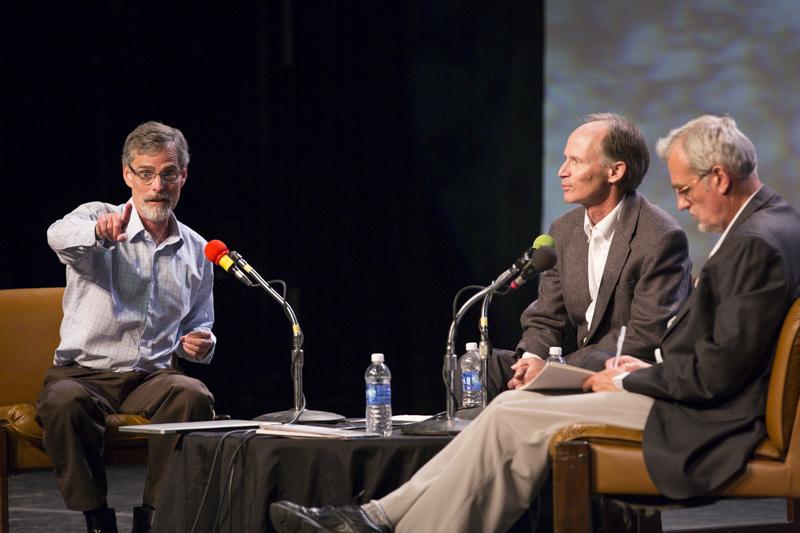
By Tori West
Fresno State professors held a symposium in honor of the late Dr. Roger Tatarian Thursday with three guest speakers who discussed current news coverage of environmental issues.
Professor Robert Hackett from Simon Fraser University spoke about “journalism for a planetary emergency,” posing the question how environmental journalism is in dire need of expanding its efforts with working with community papers, organizations, climate activists and more to sift through scientific data. In the subject of climate change, journalism can work in many different ways — some beneficial and some not-so-beneficial, Hackett said.
While emphasizing that the main concern of journalism is accuracy, Hackett also stated when it comes to major topics, opinions should also be taken into account.
The idea of regime objectivity was Hackett’s opening statement before he went on to discuss certain ways journalism can fall under this idea and how it could be applied to important subjects such as climate change.
Hackett’s portion of the symposium stressed the importance of combining journalism and the climate issue in a more collective educational format.
Tom Yulsman, director of the center for environmental journalism at the University of Colorado, focused on the science of climate change. He discussed what is currently happening with reports on climate change and why citizens grapple with the issue.
Presenting videos of “then and now,” Yulsman showed how media reporting could completely influence the community into thinking nothing is wrong with the climate. His biggest emphasis when it comes to journalism was to not “cherry pick” information to present a one-sided point of the climate issue.
He discussed the way in which global issues like climate change are portrayed, using the example of the melting of artic ice over a period of thirty years, stating that global warming and climate change are not issues being fully presented with correct data the public can understand.
Another point Yulsman discussed was an example of climate change from 1998 until now, and how saying the Earth has cooled since then is “cherry picking data” because 1998 was peculiarly hot.
His biggest ideas were how multiple news organizations report scientific facts in two different ways. When one news source claims one thing, while another news source reports on the same subject but with different, more accurate information, it causes debate and controversy.
Mark Grossi, Earth Log columnist for The Fresno Bee, localized the issue with the topic of global climate change in the Central San Joaquin Valley. Grossi, a Fresno State alumni, rounded out the symposium by saying if young journalists don’t take initiative, local news will fade.
Grossi began by emphasizing the importance of journalism and mass communication and how there is a decline in environmental reporting when in reality it is more needed than ever.
He spoke on how his surroundings were detrimental to his health and in dealing with health issues such as pneumonia and bronchitis. These experiences inspired him to get involved with journalism in order to spread the word about not only climate change, but other issues as well.




